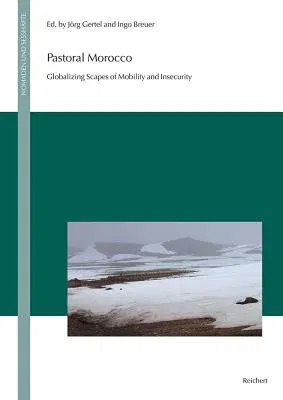Pastoral Morocco: Globalizing Scapes of Mobility and InsecurityHardcover, 11 July 2007

Qty
1
Turbo
Ships in 2 - 3 days
In Stock
Free Delivery
Cash on Delivery
15 Days
Free Returns
Secure Checkout

Part of Series
Nomaden Und Sesshafte
Print Length
257 pages
Language
English
Publisher
Reichert Verlag
Date Published
11 Jul 2007
ISBN-10
3895005525
ISBN-13
9783895005527
Description
Product Details
Book Format:
Hardcover
Country of Origin:
DE
Date Published:
11 July 2007
Dimensions:
24.28 x
17.93 x
2.26 cm
ISBN-10:
3895005525
ISBN-13:
9783895005527
Language:
English
Location:
Wiesbaden
Pages:
257
Publisher:
Series:
Weight:
639.56 gm